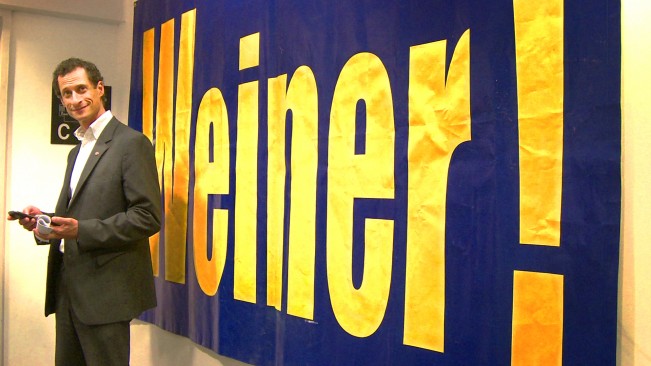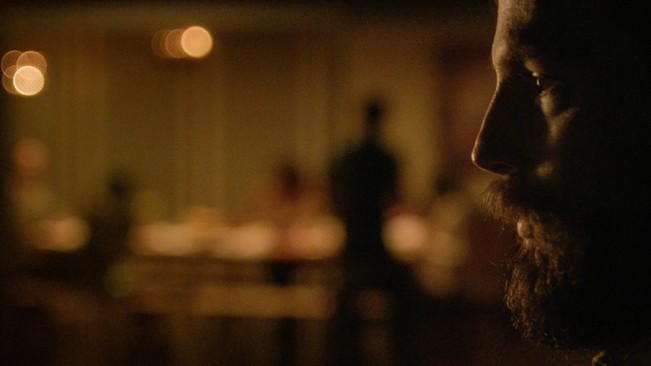

By Ray Pride Pride@moviecitynews.com
Pride, Unprejudiced: Sunset Song, Weiner, The Invitation
Sunset Song (Terrence Davies, 2015)
Master filmmaker Terence Davies spent his years between 2000’s luxurious House Of Mirth and 2008’s sparse Of Time And The City working on projects that did not come to fruition, including his adaptation of Lewis Grassic Gibbon’s 1932 Sunset Song, a novel beloved in Scotland for its portrait of rural families in the pre-World War I countryside. (“It is a dark and brooding novel about the Scottish peasantry, about the land in general and one family – The Guthries – in particular,” Davies writes.) It hardly seemed fair that a director as attuned to sound and sensation, poeticized realism pricked with quicksilver melodrama, and the power of the tableau vivant would make no more features in the vein of House Of Mirth, or even the great memory-tableau/musical/elegy Distant Voices, Still Lives. Now, at the age of 70, the long-stymied cine-swooner has hit his stride, with a second feature, A Quiet Passion, on the home life of Emily Dickinson arriving later this year as well as two other eclectic projects on the horizon, which he’s been talking up in his customarily cheery, cheeky interviews. Rich with the emotional swells and cinematic raptures you’d expect, Sunset Song is unmistakably Davies’ work, bent to his somber themes of working-class hardships, cruel fathers and shapeless dreams of escape. It’s a polished gem grown smooth through his years and years in the wilderness of fallow creativity, turning the story and his elegant widescreen images over and over in his mind. The glow of landscape makes battle with that of Agyness Deyn as his heroine, her face at once modern and of no time, matching the lilting grandeur of such moments as the opening shot, which slides and slips across a field of dry cornstalks, the wind prompting a whisking sound that pauses only when Deyn rises from within as if from the dry earth itself. Reserve reigns, emotions are withheld and unspoken. Novel and film, Davies writes, both trace “Chris Guthrie and her evolution from schoolgirl to wife to mother to widow then finally becoming a symbol for Scotland itself. The novel is both symbolic and rhapsodic. It is a work of epic intimacy set before, during and after The Great War. Yet it is delicate.” Delicate, indeed, even at the most brutal moments of neglect or reprisal. Throughout, moments tremble, tensile, with momentous eruption or violence available at a curt turn — a word, a glance, a stance. The explosion “I’ll not be treated like a Lanark tart!” from a wife lead to words from the husband that are the truest state of their marriage, their village, the war he’s about to launch into. Davies’ spare, uncluttered frames and decors hold the eye, at least until the bravura moments where his camera finds its own way into the world. One exemplary moment is a sustained traveling shot by thin morning light, of an ordinary passage of mud and remnant, a battlefield, abandoned, on a morning after men were taken and their bodies then taken away, a survey of gulleys and blastholes and barbed wire coiled along Xes of rude wood, cart wheels with no carts, as we look down from only a few feet above the scatter, gliding, wandering, observing, accompanied, of course, by a tender Scottish song, “a melancholy air,” the singer’s voice rich with masculine sorrow. The film’s stern, stoic surface parts as the story closes, with Deyn allowing the welling of Chris’ emotions to suffuse the glow of the story’s last embers. Davies has eye and ear enough even to make bagpipes at a moment of finality not only correct and proper, but also necessary. Because of the dense Scottish dialect, subtitles are provided. Magnolia, $27 DVD.
Weiner (Josh Kriegman, Elyse Steinberg, 2016)
Josh Kriegman and Elyse Steinberg’s nonfiction politico-horror-comedy Weiner begins with a quote ascribed to Marshall McLuhan: “The name of a man is a numbing blow from which he never recovers.” (The jokes not only persist, but are renewed by the latest intercession by the New York Post, followed by Huma Abedin’s August 29 request for separation from her husband.)
A jauntily-scored credit sequence follows, playing over former New York Congressman Anthony Weiner’s hot-tempered defense of 9/11 first responders, we’re positioned to take the man who brought himself down, twice, in nonsexual-sexual texting humiliation under the nom de spume of “Carlos Danger” as downright comedy of mortification. Weiner is that and more, a terrifying display of hubris and failure, and pain that is spread all around, from his loyal, beleaguered staff to his wife, Huma Abedin, known as Hilary Clinton’s right hand for many years. The proximity and intimacy outstrips average reality TV by miles. Shortly after his opening line, “Shit,” Weiner says to the camera, “I guess the punchline about me is true, I did the things, but I did a lot of other things too.” The tragic element begins quickly as he’s badgered on morality by CNN’s elder suit Wolf Blitzer: “You would know if that was your underpants.” Prescient footage includes Donald Trump video-blogging at a tear, “We don’t want perverts elected in New York City, no perverts.” Kriegman worked for Weiner during his first mayoral run in 2015, and later became his New York chief of staff. When he heard that Weiner was running again in 2013, he approached Weiner, who, you’d presume, hoped for a portrait of redemption in some form or another. By this portrait, he’s an image-obsessed, phone-fixated, emotionally masochistic man whose stirring politic instincts and genuine fits of charisma are undercut by a tendency to verbalize his every motivation, often to reporters, not just the camera, and then to slough off his statements by saying, “No, I was just talking words.” But the snips of media we see are just as daffy, with one talking head saying, “The heart has its reasons of which the heart knows nothing,” citing Blaise Pascal, which is discounted by someone else with words for Abedin, drawn from “Macbeth,” “Has she eaten on the insane root that devours intellect?” It’s a smaller canvas than Shakespeare’s, or is it? Are we observing the contents of a man’s mind, confined to the “infinite space” of himself, sprayed upon the canvas of contemporary politicss? It’s an appalling, fascinating, compelling portrait of a modern politician. A high point among so many, flawed only by a small, smoothing cut, is in the Weiner-Abedin kitchen one morning, when Abedin is asked how she’s doing. She pauses, there’s a cut, she says flatly, “It’s like living in a nightmare.” She smiles, all poise and resolve and red lipstick and white teeth and hightails it out of the frame. Second only to that is Weiner turning to his interrogators in the back of his car, “Isn’t the fly on the wall technique, doesn’t that have a little to do with the notion of not being seen or heard, you just kind of pick up what goes on around you?” Why would any politician offer this much intimate access at work, in the car, at home? Would any politician ever do it again? You can guess why; of course. MPI, $25 DVD.
The Invitation (Karyn Kusama, 2016)
Seething paranoia marks The Invitation, Karyn Kusama’s scalpel-sharp Hollywood Hills dinner party-gone-wrong chamber drama: agendas overlap and bite. Or is it, like Thomas Vinterberg’s Festen, a matter of everything that goes wrong is very right and simply hasn’t been spoken aloud? And holding a secret inside means that it can never be forgotten? Unresolved grief about the loss of a child is only a small factor, a starting point of the cunningly modulated drama, written by Phil Hay and Matt Manfredi, which also incorporates a pitch for a religious cult. (Like most every dinner party set in the Hollywood Hills, the cell service is iffy.) Each player has a role and each actor a type, embodied with relish—Logan Marshall-Green, Tammy Blanchard, Michiel Huisman, Emayatzy Corinealdi, a hair-trigger Lindsay Burdge and the great John Carroll Lynch inhabiting another role of dark calm and kindly threat. There’s a whiff of blood in the air, and indeed, the lighting of the well-appointed house tends to lend the color of clot and stain to each new passage. It’s piss-elegance crying out to be trashed. The intelligence Kusama applies to even the most basic psychological twists impresses at most every turn, and there are several gratifying curveballs as well. Patience. So much patience. So much return. It’s sweet catharsis. (With sound alone, the gorgeous, simmering, anxiety-ridden final shot indicates a world outside the frame, voices pitched, sirens awail, frenzied, too.) Drafthouse Films, $35 Blu.
















